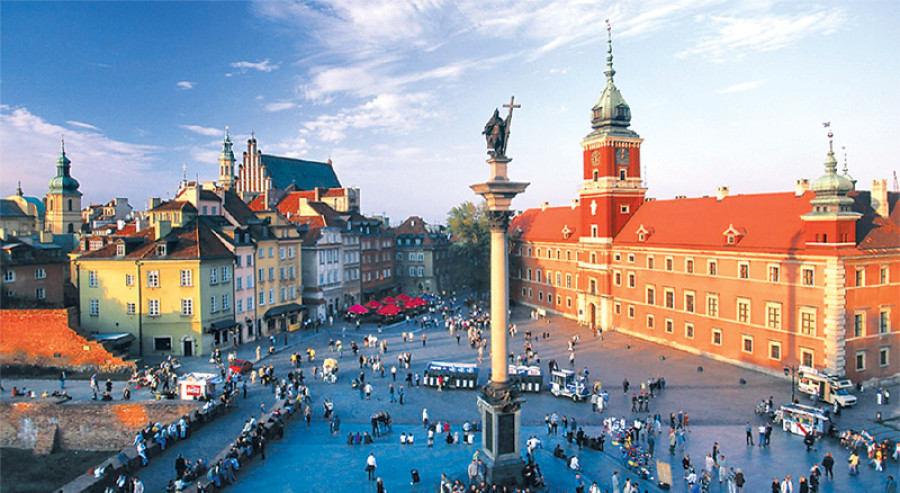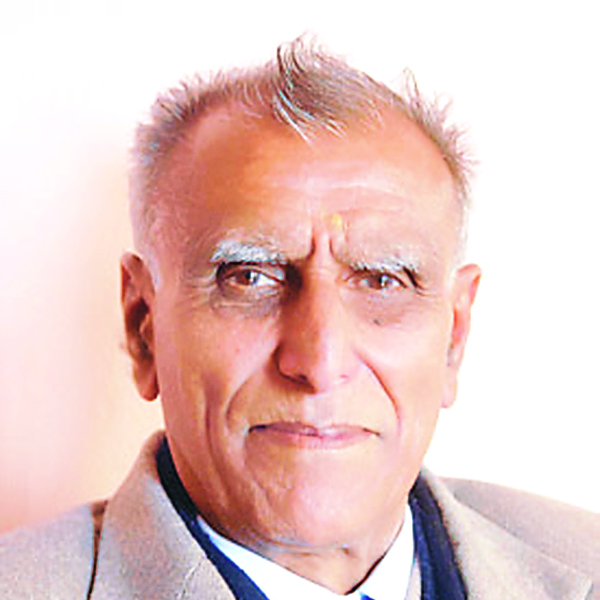Opinion
Remembering Solidarity
When I landed in Warsaw on the first leg of my Europe tour, the sun was shining which is rare in this part of the world.
Ram Chandra Pokhrel
When I landed in Warsaw on the first leg of my Europe tour, the sun was shining which is rare in this part of the world. I took that as a warm welcome. The Nepali Community Coordination Committees of Poland and Germany had invited me, and I was going to visit the two countries and some others close by. One destination in Poland I wanted to visit was Auschwitz, the largest Nazi death camp where more than a million Jews were killed during World War II. It is located near Krakow some 360 km southwest of Warsaw. Another plan was to go to Gdansk, about 417 km northwest of Warsaw on the coast of the Baltic Sea, to see former Solidarity leader and Polish president Lech Walesa. I met Walesa in Gdansk on October 10, which will always be an unforgettable day for me.
Value based politics
Solidarity, an independent trade union movement, was born in 1980 in this famous harbour city. Solidarity inspired protests against communist regimes across eastern Europe in the 1980s, which eventually led to the dismantling of the Soviet-backed Eastern Bloc. The movement was also popular among freedom loving people in Nepal. The daily news broadcasts about Solidarity on the BBC World Service were like hot cakes for the new generation of youths who were dedicated to the cause of democracy. This scribe was among those working for democracy and against the dictatorial system that had banned political parties in Nepal after the coup staged by the king in 1960. The charismatic leadership of BP Koirala, who was a symbol of ‘value based’ democratic politics, also attracted thousands of youths.
A similar ‘value based politics’ launched by the Solidarity trade union movement was popular in Poland. The Gdansk-based organisation not only made an impact on the Polish people but also all those people who aspired for freedom. The central force of the movement was Lech Walesa. When martial law was lifted in Poland and Walesa was released from detention, he was received by Pope John Paul II at the Vatican. Afterwards, he traveled to Italy, Japan, Sweden, France and Switzerland as a guest of the International Labor Organisation (ILO).
In October 1983, the announcement that Walesa had been awarded the Nobel Peace Prize raised the spirits of the underground movement. Though the government media attacked the award, it was hailed by the rest of the world as the most welcome move in recognising the free trade union movement. Meanwhile, Polish president General Jaruzelski failed to address the problems of the common people. That was the reason why he became unpopular day by day. Ultimately, the dictatorial regime was compelled to announce general elections and Lech Walesa was elected president of Poland. I had the wonderful opportunity to meet the great leader Walesa at his office in Gdansk Harbour.
‘Guests from Nepal’
The meeting was memorable in more ways than one. My wife Mina and I reached Walesa’s office 15 minutes early with all my team members. They included Bodha Raj Subedi, chairman of Non-Resident Nepali (NRN) Poland, and his wife Alini and their children Nichhal and Nishi who were also eager to see the great man of Poland about whom they had read so much. All the members of the group, except we two, were fluent in Polish. As we were waiting, an old lady walked slowly into the waiting room and said something. I could understand the first word “sorry”, the rest was unintelligible to me. The faces of my team members were not bright and encouraging at that moment. A little later, they gave me a hint of what she had said. Another lady, who had confirmed our appointment two days ago, seemed to be insisting that we should be allowed to see Walesa. As they told me, she was pleading on our behalf; and she was saying that we were not local visitors but had come all the way from Nepal, the land of the Himalaya.
What had happened was that Walesa’s close friend and movie director Andrzej Wajda had died the previous day, and all official programmes at his office and meetings for the day had been postponed. Walesa was about to leave for another event related to his death. Despite the unfortunate circumstances, Subedi asked for a few minutes with Walesa. We were shown in but were requested not to engage in ‘business talk’. We entered Walesa’s office where we found him waiting for us. Respecting the gravity of the hour, I did not lose even a second to extend my hand towards him who responded warmly. I was in the peculiar Nepali dress, baggy trousers and long shirt; and without any delay, I put a colourful Dhaka cap on his head. It made him smile. I then presented him an idol of Lord Buddha and a hand-woven woollen shawl for his wife Danuta.
Photos of Walesa with the Dhaka cap on his head and Buddha’s statue in his hand were taken. He asked for more photos to be taken of him with all the members of the delegation and separately with the youngsters. Walesa seemed to be pleased by the presence of the Nepali visitors in his office. I did not want to pass up the opportunity, and I handed a letter to Walesa on behalf of the Jananayak BP Koirala Memorial Trust to visit Nepal at his convenience, if possible on February 18, the Democracy Day programme of the BP Trust. It was a unique and unforgettable moment when Walesa listened to the voice of a Nepali who reached there from the land of Everest and Lumbini. Thus the historic visit and meeting concluded. The next day, a group photo that was taken with us appeared on Lech Walesa’s Facebook page with the brief note ‘Guests from Nepal’.
- Pokhrel is a member of the Legislature-Parliament




 24.89°C Kathmandu
24.89°C Kathmandu











